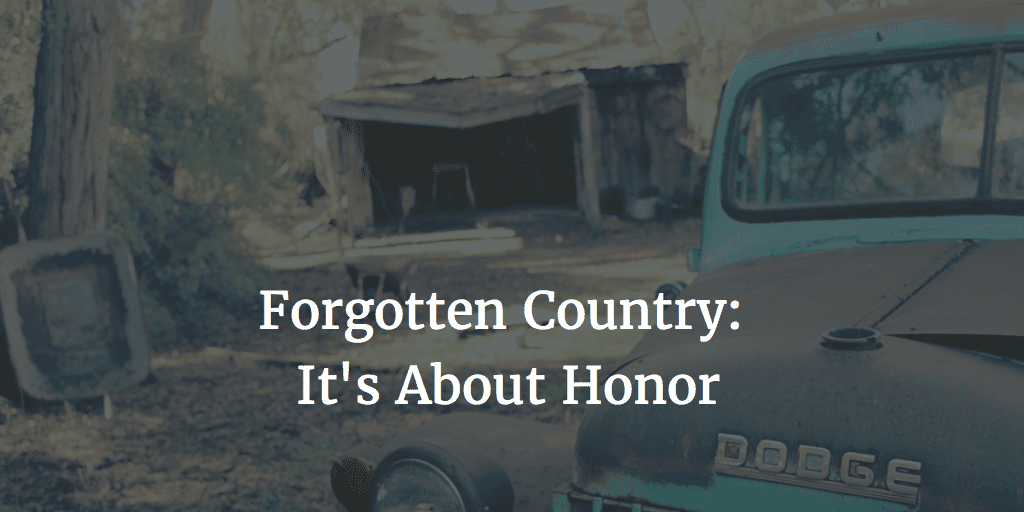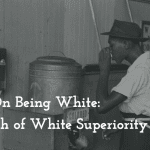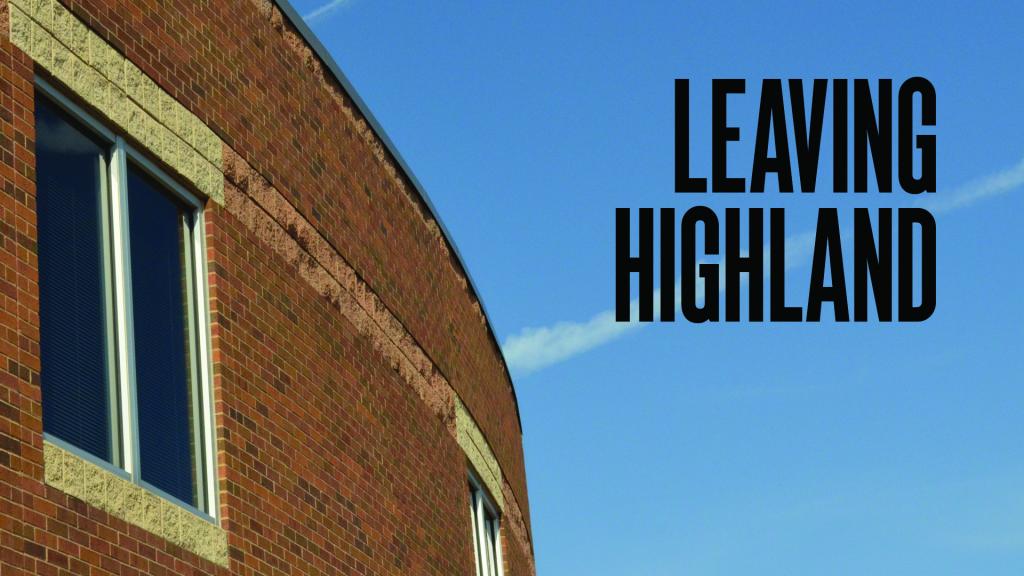 Hillbillies respect the dead.
Hillbillies respect the dead.
That’s one of the first things you should know about us, If you’re not from fly-over country, than you might be surprised to see that whenever a funeral procession goes down the road here, all the cars pull over, and people will often get out of their car and stand in respect for the deceased and their family.
Mind you these are people that we don’t know.
We don’t know their race, background or eduction, but we honor them.
Life matters, and that means death matters, and this is how we can honor them and their families.
That’s the good side of honor, and that I think is why J.D. Vance begins his memoir Hillbilly Elegy with the story about his MeeMaw explaining to him why they pull over whenever a hearse goes by.
Then he proceeds to tell you about all the fights he got in during school because people were talking trash about the women in his family.
This may sound bizarre to someone on the outside, but this is spot on in my experience. I can’t tell you how many fights I saw or participated in, that were really about defending/protecting/gaining honor or saving face.
Vance talks about how he and his uncles would sit out in the front yard, while they told stories about defending the families honor. And how those stories made him view the world a certain kind of way:
These stories made me feel like hillbilly royalty, because these were classic good-versus-evil stories, and my people were on the right side. My people were extreme, but extreme in the service of something—defending a sister’s honor or ensuring that a criminal paid for his crimes. The Blanton men, like the tomboy Blanton sister whom I called Mamaw, were enforcers of hillbilly justice, and to me, that was the very best kind.
Hillbilly Justice
In the early 1990’s two psychologists (Cohen and Nisbet) at the University of Michigan decided to do an experiment to learn more about this culture of honor. The experiment asked young college-aged men to walk down a narrow hallway to go to a classroom, but for half of the students walking down the hallway, another college student would open up a drawer, making the narrow hallway more narrow.
When they tried to get around him, he would look up and mutter “a**hole”
And then these guys would go into the classroom where they were given an imaginary scenario of another man being disrespected. How, this survey asked, do you think the man insulted would respond.
In his book Outliers, Malcolm Gladwell describes their discovery like this:
The results were unequivocal. There are clear differences in how young men respond to being called a bad name. For some, the insult dramatically changes behavior. For some it doesn’t. But the deciding factor isn’t how emotionally secure you are, or whether you are an intellectual or a jock, or whether you are physically imposing or not. What matters—and I think you can guess where this is headed—is where you’re from. The young men from the northern part of the United States, for the most part, treated the incident with amusement. They laughed it off. Their handshakes were unchanged. Their levels of cortisol actually went down, as if they were unconsciously trying to defuse their own anger.
But the southerners? Oh my. They were angry. Their cortisol and testosterone jumped. Their handshakes got firm. Steve was all over Larry.
“We even played this game of chicken,” Cohen said. “We sent the students back down the hallways, and around the corner comes another confederate. The hallway is blocked, so there’s only room for one of them to pass. The guy we used was 6’3″, 250 pounds. He used to play college football. He was now working as a bouncer in a college bar. He was walking down the hall in business mode—the way you walk through a bar when you are trying to break up a fight. The question was—how close do they get to the bouncer before they get out of the way. And believe me, they always get out of the way.”
For the northerners, there was almost no effect. They got out of the way five or six feet beforehand, whether they had been insulted or not. The southerners, by contrast, were downright deferential in normal circumstances, stepping aside with over nine feet to go. But if they had just been insulted? Less than twofeet. Call a southerner an a**hole, and he’s itching for a fight. What Cohen and Nisbet were seeing in that long hall was the southern culture of honor in action.
So at the most basic level of human interaction, there is a difference between how people respond to being shamed and dishonored and it’s based on, of all things, location.
But this too is misleading, because the Southern culture is no longer just bound to the South. J.D. Vance’s Hillbilly Elegy, tells of his upbringing in Ohio, but by a family of Kentucky transplants who still acted, thought and fought the same way they had for generations.
Code Of Honor
And for this group of people, in the words of Vance, “poverty is the family tradition.”
Growing up, I had no idea that I was ever going to get to go to college. That wasn’t in the cards for me. My best future involved being a construction worker and living and dying in Benton Arkansas, hopefully not hooked on prescription pills (or worse) like so many of my friends.
To call most of these people privileged doesn’t quite fit.
Sure, many of them might be white, many are male, and lots happen to be Protestant. On a checklist of privilege they would seem to have all of the boxes marked, but to put the people I grew up with in the same kind of category as Bill Gates, or even a lower-middle-class white suburban family is to misunderstand them and their situation.
So what does this have to do with the White working class who voted for Trump? A couple of things, I’d like to talk about over the next two weeks. I believe it boils down to the dividing lines of economics and education, and how both of these things are tied into what we talk about when we use phrases like identity politics and voting values.
But for today, I wanted us to see that this is why the progressive shaming of this group of people not only didn’t work, it in fact backfired. Because we live by honor and die by it.
Honor is the one thing I had control over when I was a kid. And if you messed with that, if you insulted my family, there was an unspoken code that meant we were going to fight.
I’ve seen friends doing incredibly stupid things that I wish they wouldn’t have done just to save face, or defend their family name.
I’m not defending this reality. I’m just explaining it.
So how do we go forward?
I think this election taught us that the disparity of the white working class needs to be acknowledge as a real one, and not written off by elites or politicians as menial because the color of their skin happens to be white.
And we have to learn that education isn’t a unilateral thing done by people with degrees to tell people who have a different kind of life education why their wrong and how they should think.
That at best feels like smug condescension and at worst is a kind of bigoted blindness that calls someone else a bigot without realizing the plank in their own eye.
We have to realize that building a country together involves trying to honor each other, and at least acknowledge the contributions others have given in trying to make to make the world a better place, even as we offer our critique.
Because honor goes a long way.










